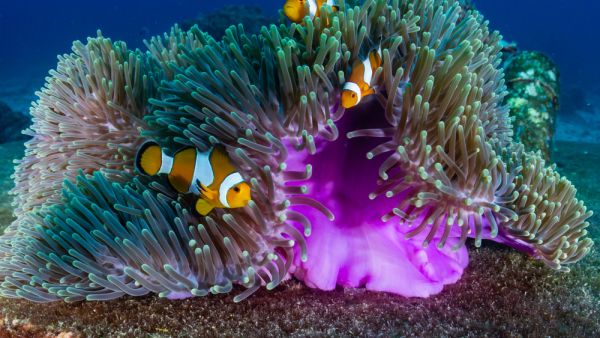Saudi Arabia on Monday reiterated its commitment to preserve and restore its marine biodiversity.
Deputy Minister of Environment, Water and Agriculture Dr. Osama Faqeeha, who is also the inaugural chairman of Global Coral Reef R&D Accelerator Platform, said Saudi Arabia is home to the Red Sea’s most resilient coral reefs and it will continue to take measures to protect the marine life.
Red sea fish - pic.twitter.com/bPjRpFh38G
— Ennio Maffei (@enniomaffei) June 29, 2021
Faqeeha was talking at the inaugural meeting of the governance committee of the platform.
The platform is an innovative action-oriented initiative aimed at creating a global research and development (R&D) program to advance research, innovation, and capacity building in all facets of coral reef conservation, restoration, and adaptation, and strengthen ongoing efforts and commitments made to enhance coral reefs conservation and their further degradation.
During the meeting, Faqeeha was elected chairman of the platform’s governance committee, and Jennifer Koss, director of the Coral Reef Conservation Program at the US National Oceanic and Atmospheric Administration, deputy chairman.
Shark leaps from sea to tear chunk out of paraglider's foot in Red Seahttps://t.co/kdmRQ4pqcR pic.twitter.com/0vFuxAjXfE
— The Mirror (@DailyMirror) June 30, 2021
The Saudi deputy minister highlighted the importance of the platform in accelerating scientific research and conversation and restoration of coral reefs around the world using the latest technologies.
The Red Sea hosts some of the most productive and richest coral reef ecosystems with a coral reef framework along its entire coastline.
Scleractinian, reef-building corals are the foundation species of the coral reef ecosystem. The reef framework provides shelter to thousands of fish and invertebrate species.
In September 2018, a framework agreement between the Prince Albert II of Monaco Foundation and the Public Investment Fund’s Red Sea Collection was signed in relation to sustainable development and marine conservation. The agreement paves the way for an exchange of expertise to help safeguard marine biodiversity, protect coral reefs, and combat plastic pollution.
These protections will be essential as Saudi Arabia moves forward with sustainable development plans for the West Coast, including the NEOM smart city project and the Farasan Islands tourism initiative. Major environmental studies have already been done to ensure the area’s sensitive ecology will be protected.
This article has been adapted from its original source.











